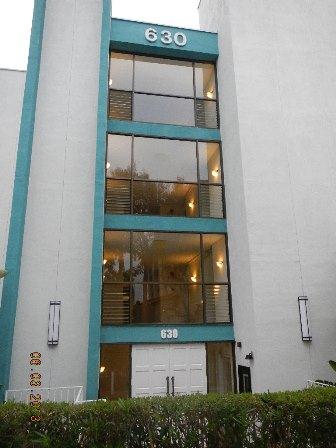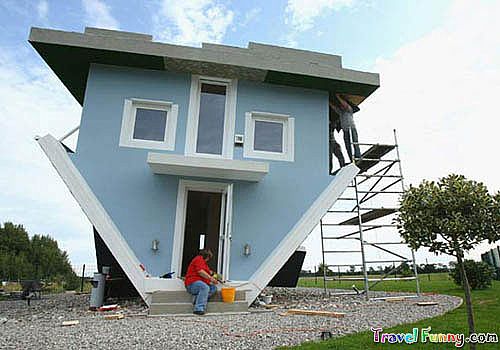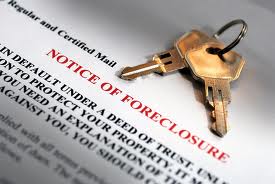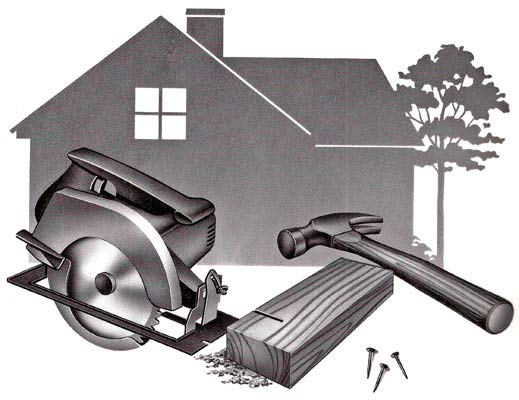
BLOG
What The Heck Is A Short Sale
Please note, this transcript is an abbreviated version of the video.
Hello Hello Hello my loves this is Laura Key, I am the Realty Goddess of Los Angeles California. I help "Establish the Community One House At A Time" and I have been in the business for 11 years. I started my career in Colorado and now I am in Los Angeles. I have been in Los Angeles for about six years now and I was a Realtor in Colorado for five years. I love me some Denver. Denver is actually going through a big boom right now as well as Los Angeles.
What the heck is a short-sale? You see them listed on the MLS sometimes and you hear that you can grab a bargain if you purchase one. Today we will discuss these issues and educate you on how these types of sales are processed.
The first thing to learn about a short-sale is that there is nothing short about a short-sale! What is actually short, is what the owner currently owes the bank compared to what the current market value is. If the home is upside down or less than what the current owner paid then the owner has to ask permission from the bank to sell the home at a loss. There are many different reasons that people have to do a short-sale but it's typically centered around a hardship. Maybe the owner lost a job, lost a spouse, has to relocate for a job or has become ill and can no longer afford the home.
Let's take a quick look at what a short-sale is and how it is processed so you can get a better understanding as a buyer so you can decide if you want to go for them as a purchase OR have a better understanding if you are in the seller role.
The number #1 rule is worth repeating...There is nothing short about a short-sale.
The first thing you want to do if you are the owner and have found yourself in a financial bind and you need to sell your home but you cannot pay off the full mortgage, you must contact your financial institution immediately. Let them know the situation and tell them you are interested in doing a short-sale. The majority of financial institutions have short-sale packets ready for you to fill out. The more pro-active you are the more chance you will have in selling your home as a short-sale. These packets can be very tedious and frustrating because it's a lot of paperwork and a lot of writing.
Here is typically what you are going to be asked for: two years worth of taxes, a hardship letter that explains why you need to sell, 3-6 months of pay stubs, 3-6 months of bank statements. If you don't have any of these items, you must write a note as to why you do not have theses items. Simply saying "I don't have them" will not work. Write it out and put it in the packet. Your hardship letter needs to explain exactly why you are having a hardship. Keep it simple and to the point, there is no need to write a book. My advice is to have all of these items completed BEFORE you list the home. Your real estate professional can help guide you on this.
Your home will be marketed just like a regular home for sale. We will have open houses, we will advertise, we will have showings. Once that has been completed and we have an offer or offers, we choose the best offer to accept then prepare to present it to the bank. I must stress that a COMPLETE short-sale packet must be sent to your bank or it can cause problems. It will be the ultimate decision of the bank if they will accept the offer or not. Most likely they will respond to what "their" terms will be for any potential buyer. It takes about 45 to 120 days for a short-sale to be completely processed.
To the buyer, short-sales are not always easy, you are going to have to be patient. If you like that house and you want that home then you must be patient while this process is going on. Unfortunately, an agent is not going to be able to update you daily, but a good agent knows that they must talk to the bank at least twice a week to keep the short-sale moving smoothly. I typically give all parties an update once or twice a week as I get them.
Are short-sales always a good deal?
Some are and some are not. It also depends on the market itself. We are in a seller's market (May 2017) and this means inventory is low so ALL homes are being considered by many buyers. You will find multiple offers even on distressed sales. Sometimes being a backup offer on a short-sale can benefit you because nine times out of ten the writer of the original winning offer is no longer interested.
How does a short-sale affect your credit as a seller?
Short-sales are not as bad as a foreclosure on your credit. If you keep your credit clean after your short-sale, you may be able to buy again after two years. Short-sales are reported on your credit. It will affect your credit score.
I always advise if you are in trouble with your payments, please contact your financial institution as soon as possible and inquire if a short-sale is for you. In the long run it's going to be better for you and your future home buying.
For more information about short-sales or any other real estate topic please reach out to me and I will help assist you!
Bank Faces Lawsuit Over Excessive Fees
Are you facing or someone you know facing foreclosure? There are sources out there to help you! Call me for a list of free resources! Laura Key 310.866.8422
JPMorgan Chase faces a lawsuit that alleges the bank imposed overly high or unnecessary fees on delinquent borrowers. The banking giant tried to get the case dismissed, arguing to the courts that the claims were unjust, but a federal judge ruled the lawsuit should proceed.
Borrowers are accusing the bank of “imposing excessive or unnecessary fees to inflate profit, including on services performed by third party vendors, cheating thousands of already-strained borrowers out of millions of dollars,” Reuters reports.
Among the fees in question range from $95 to $125 for “broker’s price opinions.” The plaintiffs, who reside in Tennessee, California, and Oregon, claim that the BPOs cost $30 to produce and that according to Fannie Mae guidelines they should not cost more than $80.
Similar lawsuits over mortgage fees charged to delinquent borrowers are pending against Wells Fargo and Citigroup.
Source: “JPMorgan must face lawsuit challenging mortgage fees,” Reuters (June 14, 2013)
Rare Opportunity to Buy by the Beach!
What a wonderful opportunity to live your dream of living by the beach! Redondo Beach to be exact! Call me for a scheduled showing! Laura Key 310.866.8422
630 The Village Unit 110 Redondo Beach, CA
$385,000
1 Bed 1 Bath 621 SqFt - HUD
Click Photo for Virtual Tour!!!
Call me today! Laura Key 310.866.8422!
Experienced HUD Selling Agent!
Laura Key on CBS News
5 Things You Should Know Before You Flip A Property
Money is made at the buy, not the sell of your flip. When flipping a house your money is made at the purchase not at the sell of the house. So, many times people buy a house with the intentions of making a huge profit only to find out that they could not make any money after all the renovations because the purchased price of the house was to high.
1. Money is made at the buy, not the sell of your flip. When flipping a house your money is made at the purchase not at the sell of the house. So, many times people buy a house with the intentions of making a huge profit only to find out that they could not make any money after all the renovations because the purchased price of the house was to high. When you purchase your property you need to be sure that you buy the house with enough money to make renovations, have carrying cost, and add about 5 $6,000. Now, cost is at $147,000, and that is if everything goes as planned. Profit is under 10,000 dollars. The mistake was made at the purchase at the home, not the sell.
2. Get an inspection on the home - Get a complete inspection done on your property. By, spending a few hundred dollars on this expense you can save thousands in problems that you cannot see. Foundation, Pest, Wood Rot, Etc... By, getting a full inspection you can rest assured that you know every thing that is wrong with the property before its to late. In the contact for the house you need to make sure that you have 7 days to have a inspection preformed, and if the inspection finds problems that are going to cost more money that you are willing to spend you can get out of the contract with no penalties.
3. Don't do the work yourself: - Get a contractor or several sub-contractors and have the work done quickly. You need to have you house flipped ASAP, so that you can get it on the market and get it sold. When I started flipping my brother and me did a house together, and we did all the construction. I had a construction background and figured it would save thousands, but it took us over 4 months to get the work done that a contractor could have had the work done in a month. But, we trying to save money on our flip did all the work on our time off and after work, and it just took to long. On our 2'nd flip we used contractors for almost everything and had the house completely flipped with a new roof, new air conditioning, new hardwood, and much more in only 3 weeks. We did not have to spend all our time working on the property and were able to spend that time looking for the next deal. This is how you get rich in real estate.
4. Place the property 1 to 2 percent below market value: If you are wanting to flip real estate and make money the object is to buy and sell the property as quickly as possible, so that you can move on to the next house. If you purchase a house and try to sell it at top dollar to make and extra couple of thousand dollars on your flip, and end up holding it for 6 months you are loosing money. Get the house on the market at a price that is going to blow the competition away, and you will sell it no matter what the market conditions. On our second house the market for selling house went down do to the housing market as a whole, and the tightening of the loans across America. We were told that you could not sell a property in this market, but we went ahead anyway and flipped our house. After 3 weeks on the market we had 3 people wanting to buy the house. Why, because we offered it at such a great deal that people wanted to jump on it. That is what you have to do especially if the market is slow.
5. Use a real estate agent - Do not try to sell you house on your own. Harness the power of a real estate agent and the power of the MLS system. When you do a FSBO you are depending on people driving by your house and seeing you sign, with a real estate agent you have someone actively marketing you house to get it sold. Once again this will free up more time for you to look for more great deals. If you want to help the process I have found that craigslist and listing you house in google adwords help to, but use these tools with the help of a agent such as Laura Key to make sure I have all my bases covered.
I hope this article has been helpful with the basics needs of flipping a house. If you will study and learn you will make money. But, do your homework before you purchase a house, and make sure that you can pull a profit on your deal. Then, make it happen! I am a Investor Friendly Agent, let's get you some deals! Laura Key 310.866.8422
Laura Key on CBS News
Great Burbank HUD Home! 2 Bed 2 Bath
HUD Homes are a wonderful way to purchase your first home! Most are FHA approved and don't need much work at all. Make sure you use a HUD experienced agent as myself! I have helped many families obtain their Home Dreams with HUD! Call me today for more info! Laura Key 310.866.8422
2359 N. Reese Place
Burbank CA 91504
Wells Fargo, Citigroup Halt Foreclosure Sales
Banks seem to be moving in the right direction on this action. But is it too late? Call me if you are in need of help! Laura Key 310.866.8422
Wells Fargo and Citigroup have temporarily halted foreclosure sales in several states, taking precautions after a federal regulator released new guidance on minimum standards for foreclosure sales.
The Office of the Comptroller of the Currency (OCC) recently released the new standards. The OCC’s directive mostly consists of 13 questions banks need to ask themselves before selling a home in foreclosure, such as whether the borrower is protected from foreclosure by bankruptcy or if the borrower is in an active loan modification plan.
JPMorgan had also mostly stopped its foreclosure sales after the OCC’s standards were released, but has since resumed sales.
Wells Fargo, the nation’s largest mortgage originator, has seen a dramatic drop in foreclosure sales while significantly decreasing the number of sales it’s processing. For example, foreclosure sales by Wells Fargo in California, Nevada, Arizona, Oregon, and Washington plummeted from 349 a day in April to less than 10 a day, according to Foreclosure Radar, a real estate monitoring firm based in California.
"Wells Fargo has temporarily postponed certain foreclosure sales while we study the revised guidance from the OCC," a Wells Fargo spokeswoman confirmed for American Banker. Citibank officials also confirmed the reason behind their halt in sales was to carefully review the new guidance.
"The OCC did not direct a slowdown or pausing," says OCC spokesman Bryan Hubbard. "However, if servicers are not certain they are meeting these standards, pausing foreclosures is a responsible and productive step."
Are you facing foreclosure? Contact me for a free consultation!
[contact-form subject='Help! Facing Foreclosure!'][contact-field label='Name' type='name' required='1'/][contact-field label='Email' type='email' required='1'/][contact-field label='Phone' type='text'/][contact-field label='Comment' type='textarea' required='1'/][/contact-form]
Source: “Wells, Citi Halt Most Foreclosure Sales as OCC Ratchets Up Scrutiny,” American Banker (May 17, 2013)What To Ask When Looking At Potential Homes
Buying a house can be an intimidating and overwhelming experience. Here are some key questions to ask yourself and sellers before plopping down a down payment. Let me help you with my FREE homebuyer's class! Call me today! Laura Key 310.866.8422
Buying a house can be an intimidating and overwhelming experience. Here are some key questions to ask yourself and sellers before plopping down a down payment.
What To Ask When Looking At Potential Homes
Following is a list of general questions you should always ask when considering making a real estate purchase. Keep in mind, however, you are unique.
You have particular dislikes and likes as well as factors in your life that are different than other people. The point I am trying to make is that you shouldn’t stick to just these questions. You are making an important choice, so give some thought to your situation.
1. Don’t rush into things. The first question to ask should be directed at yourself. What type of home do you want? How big should it be? What amenities do you want? Are you planning for a family in the next three to five years and will the home be able to accommodate a new bundle of joy? Make a definitive list and stick to it. If you stray from it, you could end up with a house that doesn’t really fit you and suffer buyer’s remorse.
2. The next question is what area do you want to live in? Pick a few. You may find the prices to be excessive or the selection not so hot, but make sure you exhaust those areas before moving on. Again, you want to avoid buyer’s remorse.
3. Once you start looking at homes, a key question to ask is how long the house has been on the market. The amount of time will give you an idea of how flexible the owner is on price. If the house has been on the market for a month, the owner isn’t going to be very flexible. If it has been on the market for six months, flexibility will definitely exist.
4. Has the house previously been in escrow, but fell out? If so, find out why? Was it a problem with the buyer getting financing or did the buyer find out there was something wrong with the home?
5. What kind of condition is the house in and how old is it? Remember that a seller has typically done everything reasonably possible to spruce up the home. If you can see wear and tear on the house, it may be a red flag. In such a situation, you need to get a home inspection to make sure there aren’t problems in areas you can’t see such as mold, rust and water leaks.
6. If you have children or are planning on it, you must investigate the school district. Are the schools good? Are there gangs or crime in the area?
7. In addition to the home price, you should ask whether there are any additional fees such association fees.
8. What are the property taxes and what will they be when you buy? Many people are shocked to find out how much they have to kick out in property taxes. Don’t get surprised.
9. Zoning and easement issues are often overlooked when buying a home. If you are buying in a neighborhood with many homes, zoning is undoubtedly going to be for residential living. Easements, however, can be nasty surprises. Find out if there are any easements on the property. An easement gives a third party the right to use of part of the property. This can include giving the neighbor the right to do something or a utility company to place structures on your prospective property.
10. Noise is another big issue to consider. If you are serious about the property, make sure to drive buy on weekdays and weekends. If the property shares a wall with another residence, such as a duplex or condo, make sure you view it while the neighbors are home to get an idea of how loud it is.
11. In the euphoria of buying a property, practical issues can be missed. A big one is traffic. Specifically, what is the commute like between the house and your place of work? You don’t want to buy the house only to find out it takes three hours to get to and from work each day.
Obviously, you should be asking many additional questions before making a purchase. These 11 questions, however, will help you get started. Call me to schedule a time to discuss the homebuying process in more detail. Don’t forget to look into fun things to do in the area to make sure it’s where you want to live!I care about my clients and educating them is a priority! Laura Key 310.866.8422 or email me at Laura.A.Key@gmail.com
What to Expect At a Foreclosure Auction
Whether you are an investor that would like to get into buying foreclosed homes for your personal use! Call me today! Laura Key 310.866.8422
Whether you are an investor that would like to get into buying foreclosed homes for your personal use or to flip the property or if you are having your home foreclosed on, you should know what to expect at a foreclosure auction. Of course, the actual steps that will be taken can vary a bit from state to state and from house to house, but it’s good to know what you will be getting into when you go to a foreclosure auction. Foreclosure auctions can be exciting, even fun, but knowing what to expect will help you make the most of the experience, whether you are an investor or a homeowner that is trying to get your house back.
Before the Auction
You’ll likely find out about the foreclosure auction in a local newspaper and on the flier may be information to pre-qualify for bidding. This will allow you to put down a deposit so that the auctioneer knows that you are a serious bidder and can fulfill your bid if you are the winning bidder. Being pre-qualified just sort of speeds up the process so that you don’t have to mess around with the deposit on the day of the auction. During this time you should also do some research on the house by looking into any liens that may be against the property, how much the property is worth, how much it has appreciated in the last few years, as well as property values in the area. If the home looks as though it will need some repairs, you should consider this as well when trying to come up with how much you will be willing to pay for the house. Without this research, no amount of knowledge about what goes on at a foreclosure option will help you because you won’t know where to start when it comes to actually making a good bid.
What Happens At the Auction
The auction will typically start with the auctioneer reading legal notices as well as a legal description of the property. The auctioneer will usually then begin taking bids on the property. If the auctioneer has pre-qualified bidders the process is more streamlined, if not, each time a bid is made the auctioneer will then ask for the bidders deposit check, which is typically right around $5,000 for residential auctions. After each bid the auctioneer will attempt to solicit bids for higher amounts. Each auction is different, but the auction increments usually are set by the auctioneer and may be by $100, $500, or $1,000 per bid. The auctioneer will continue to solicit bids by this increment until it is clear that the highest bid has been reached. Then, the auctioneer will announce, “Going once, going twice, three times, sold!” indicating that the auction is over and the property has been sold to the highest bidder.
Once the bidding has ended a foreclosure deed and purchase papers will be drawn up and validated by the new owner or purchaser and the mortgage holder. A grace will likely be given to allow the purchaser to find financing or to come up with the funds to cover the full amount of the bid. This grace period is usually 30 days unless the purchaser and the mortgage holder agree to other terms. After the grace period a closing will take place, so that the new owner can formally take the title to the property.
What Happens, Now?
The purchaser can do what he or she intended to do with the property, whether it is to move into the home or to sell it for full market value. The money paid by the purchaser will be distributed in order of priority, first of which would be taxes. After taxes money will be paid to the mortgage, then the second and third mortgage if applicable. If there is still money after paying these debts, remaining money will be paid to lien holders and creditors. There is a very slim chance that there will be money left over after all of the debts are paid, if this is the case then the monies will be paid to the former home owner.
What about the Original Owner?
The original owner will often be at the auction so that they can bid on their home, and this is legal as long as they have the deposit required. If the owner of the home that has been foreclosed does bid on the home they must remember that the deposit is not refundable and the deposit assumes that they will be able to finance the home within the grace period. Owners must also remember that if they buy the property back old debts may merge and become reinstated such as second and third mortgages that became void when the first mortgage foreclosed on the property unless one has filed bankruptcy and is truly free and clear of these debts. Owners will often drum up the funds to make the deposit so that they can have another 30 days to try to save their home. Owners may or may not be successful in their attempts to save their home at a foreclosure auction.
As you can see, there are a lot of things that go into a foreclosure auction, but none of them are all that difficult to understand, but knowing about them makes the auction more enjoyable. The auction itself is not all that complicated, but it can be very fast paced. At some foreclosure auctions there are a lot of people, at others there are only a few because of the location or just the debts attached to the property, or even the state of the property. If you are serious about the property you should pay close attention when bidding starts so that you are sure that you can get your bid in when you feel it’s time so that you have the best chance of being the top bidder.
Call me for more info! Laura Key 310.866.8422
3 Ways Renters Lose Money
Are you still renting a home or apartment for yourself or your family? If so, you're losing money. Besides losing out on making money with real estate, renters don't get the same satisfaction of home enjoyment that benefits home buyers. If you're renting, call me today to find out how to to buy your own home. Call me today! Laura Key 310.866.8422
Are you still renting a home or apartment for yourself or your family?
If so, you're losing money. Think about these three ways you lose money by renting:
1. You're paying for someone else's mortgage payment. You're missing out on the appreciation that the property gives to the landlord. Appreciation is a term used in accounting relating to the increase in value of an asset, which means in real estate terms, added value to the property. Over the past five years, houses appreciated significantly, making many new real estate investor multimillionaires.
2. Renters don't get to freeze their monthly housing expenses like home buyers can. Of course, many home buyers get mortgage payments with adjustable interest rates and their payments go up over time. However, these payments will not go up over the long term like rising rents. Just think about how much an apartment costs today compared to ten years ago. A two bedroom apartment in Lake Elsinore, California leases for $1,000 today. The exact same apartment rented for $325 in 1996, when it was brand new. Home buyers who had low monthly payments in 1996, who did not refinance their mortgage, enjoy low payments and don't have to worry about rising rents.
3. Renters don't benefit from tax advantages. Home owners get income tax deductions. Tax deductions for interest costs, for instance, save tax payers thousands of dollars.
Emotional Satisfaction of Home Ownership
Besides losing out on making money with real estate, renters don't get the same satisfaction of home enjoyment that benefits home buyers. Many landlords won't allow you to paint your walls in colors that you desire. Also, you won't feel like fixing up the property with custom window coverings and you get little say in flooring materials. Because you can't make your personal statement, you won't feel like you're HOME as much as home owners who feel emotionally connected to their property.
How to Buy Your First Home
The biggest barrier to home ownership is often accumulating funds for a down payment. People think they have to have thousands of dollars for a down payment. However, if you have good credit and a decent job, you can get a mortgage for a home with zero down. And you can finance some of your closing costs as well as ask the seller to help you pay a good portion of your purchase costs. With today's mortgage finance plans, you may be surprised to find out how much of a home you can afford with payments similar to what you currently pay in rent.
You may have to go out of the major metropolitan areas to buy a home. That's why so many people commute in Southern California. Affordable housing costs much less in outlying areas. But so do the rents. If you're renting an apartment for $2,300 in Los Angeles, you could buy a $500,000 home in Wildomar. Our daughter just purchased a home in December 2005 and her mortgage payment, for a 3,000 square foot new home, costs less than $2,300. With her tax savings, she will pay even less than renting a small apartment closer to downtown L A.
If these amounts sound high to you, check your local area. Perhaps your monthly rent is only $1,000 and houses cost less than $200,000. Talk to a mortgage loan officer and see how much of a home you can afford.
If you're renting, make one of your priorities to buy your own home.
Copyright © 2006 Jeanette J. Fisher
Short sales show up on credit reports as foreclosure, sellers unable to get back in housing market
It is critical that your Real Estate Agent know what to look for in your short sale approval letter! Make sure you work with an experienced short sale agent! Call me today with questions! Laura Key 310.866.8422
More and more short sales are turning up as foreclosures on credit reports. The issue caught the attention of Senator Bill Nelson who this week asked for a federal investigation into why the mortgage industry does not have a separate credit reporting code for short sales.
Like some of his Trinity neighbors, George Albright unloaded his underwater two-story thru a short sale. A short sale damages credit versus a foreclosure that slashes consumer scores.
It's been more than two years since Albright sold his home, and now's he ready to buy again, but can't. It’s showing up as a foreclosure on his credit.
Veteran mortgage broker Pam Marron found it's a scenario repeating itself over and over again. Short sellers discover they can't get back into the housing market because their credit report shows a foreclosure.
Why? The banks and credit bureaus have no special code to report a short sale, according to Marron, who recently traveled to D.C. to educate lawmakers and lobby groups like the Consumer Protection Bureau to do something about the glitch that could affect many.
Experian says the problem is not theirs. In an email, a spokesperson explained. "The short sales and foreclosures are being coded correctly on Experian’s credit reports. Where we have found the discrepancies occurring is in the underwriting process."
Short term, Marron says, short sellers must demand a letter from their lender that states that the property closed is a short sale and any marking of a foreclosure should be deleted.
Source: www.ABCActionNews.com By: Jackie Callaway
Homebuyers clueless about mortgages
Educating homebuyers is one of my favorite things to do! Ask me about my homebuyers class! Laura Key 310.866.8422
The housing market is heating up, yet many house hunters are not prepared to take on the biggest purchases of their lives.
When it comes to mortgages, homebuyers answered basic questions about terms, how to choose a lender and financing wrong nearly one-third of the time, according to an April survey of more than 1,000 current and prospective homeowners by real estate website Zillow.
Among the survey's findings, 31% of buyers don't think it's possible to get a mortgage for less than 5% down; 34% don't know what the term "annual percentage rate" (APR) means and one in four believe you must close with the lender that pre-approves your mortgage.
"All too often buyers focus on negotiating a lower home price and ignore the importance of finding the right loan," said Erin Lantz, director of mortgages for Zillow. "Buyers should always shop multiple lenders and compare rates and fees and read lender reviews in order to find the best loan for their situation."
One example: 34% of respondents believe lenders are required by law to charge the same fees to all clients for credit reports, appraisals and the like. That's wrong. Fees vary from bank to bank and can often be negotiated.
But it's hard to compare those deals if you don't understand what mortgage terms, like "annual percentage rate," mean. The APR factors into fees, upfront points, origination and underwriting fees and other costs that borrowers use to compare the actual cost of loans.
Such knowledge gaps can have long-term consequences. About 34% of first-time homebuyers think they need a down payment of at least 5% to make a home purchase, but loans insured by the Federal Housing Administration can require as little as 3.5% down.
And 24% of buyers believe the best mortgage deals are available through the banks where they currently have their savings and checking accounts, but often competing lenders can undercut those banks by large margins.
"If a homebuyer can lower their interest rate by even half a percentage point, they can not only increase their purchasing power, but save thousands of dollars over the life of the loan," said Lantz.
For every $100,000 borrowed, a half percentage point lower rate would reduce payments by $28 a month on a 30-year, fixed rate loan. That adds up to more than $10,000 over 30 years. Or borrowers could choose to add that $28 savings to each monthly payment. That would shorten the term of the mortgage from 30 years to just over 27 and save $6,500 in interest paid.
Another costly mistake: Many house hunters go shopping with financing in place because it enables them to act more quickly if they see a home they want. But 26% of buyers believe that once they're pre-approved, they're obligated to close the deal with those loans, according to the survey. In reality, there's no obligation. If buyers see better terms available they should take them.
Existing homeowners can also be guilty of ignorance. Some 20% of homeowners surveyed didn't know that underwater mortgages -- those in which borrowers owe more than their homes are worth -- can be refinanced into lower rate loans.
Finally, the survey found that nearly a third of homeowners are unaware that if they go through a foreclosure or short sale, they may not have to wait the full seven years it takes for their credit score to recover and they can buy a home again.
In reality, some homeowners who do short sales can obtain financing to buy another home in as little as two years.
The Consumer Financial Protection Bureau is hoping to make it easier for homebuyers with simplified mortgage forms that help them compare terms and costs and by creating new rules that will protect homeowners from getting into loans they can't afford.
Free home search here! Click the house to begin!
Source: By Les Christie @CNNMoney May 9, 2013
Does HUD Offer Special Programs for Homebuyers?
Buying a HUD Home is not as difficult as you may think! I have helped many people purchase their 1st Home from HUD! Call me today for more details about the process! Laura.A.Key@gmail.com or Visit my website to sign up for FREE HUD Listings! http://www.KeyCaliforniaHomes.com
Yes, HUD offers a program called the GOOD NEIGHBOR NEXT DOOR PROGRAM for Police Officers, Firefighters, EMT and Teachers! Call for more details on this program! 310.866.8422. If foreclosures are not sold within six months, HUD will sell them for $1 each to approved nonprofit organizations and government agencies. Homes must then be used create housing for families in need or to benefit neighborhoods.
Los Angeles HUD homes, Buying A Hud Home, North Hollywood HUD homes, Westchester HUD Homes, Gardena HUD Homes, Northridge HUD Homes, Santa Clarita HUD Homes, Simi Valley HUD homes, Lemert HUD Homes, Compton HUD Homes, Lynwood HUD Homes, Hawthorne HUD Homes, Inglewood HUD Homes, Baldwin Hills HUD Homes, Playa del rey HUD homes, Marina del Rey HUD Homes, Santa Monica HUD homes, Lakewood HUD homes, Buying A HUD Home, Buying a Los Angeles HUD Home, HUD Trained Agent, HUD NAID agent, Good Neighbor Next Door
Does HUD Offer Financing On Their Homes?
Buying a HUD Home is not as difficult as you may think! I have helped many people purchase their 1st Home from HUD! Call me today for more details about the process! Laura.A.Key@gmail.com or Visit my website to sign up for FREE HUD Listings! http://www.KeyCaliforniaHomes.com
HUD does not provide direct financing to buyers of HUD Homes. Buyers must obtain financing through either their own cash reserves or a mortgage lender. If you have the necessary available cash or can qualify for a loan (subject to certain restrictions) you may buy a HUD Home. While HUD does not provide direct financing for the purchase of a HUD Home, it may be possible for you to qualify for an FHA-insured mortgage to finance the purchase.
Los Angeles HUD homes, Buying A Hud Home, North Hollywood HUD homes, Westchester HUD Homes, Gardena HUD Homes, Northridge HUD Homes, Santa Clarita HUD Homes, Simi Valley HUD homes, Lemert HUD Homes, Compton HUD Homes, Lynwood HUD Homes, Hawthorne HUD Homes, Inglewood HUD Homes, Baldwin Hills HUD Homes, Playa del rey HUD homes, Marina del Rey HUD Homes, Santa Monica HUD homes, Lakewood HUD homes, Buying A HUD Home, Buying a Los Angeles HUD Home, HUD Trained Agent, HUD NAID agent
HUD-Owned Homes Expected to Surge
Soon the market will be filled with new listings from HUD! Are you prepared? Make sure you use an agent who is HUD experienced and can help you find the home of your dreams. I have closed many HUD homes in the past few years! Let me assist you! Laura Key 310.866.8422
The U.S. Department of Housing and Urban Development is reportedly going to be releasing more of its homes to the market, which could be welcome news to buyers who have faced slim pickings in for-sale inventories.
Over the next two years, experts predict that HUD homes on the market will increase significantly as lenders work through the backlogs of foreclosures and foreclosure reviews.
“The inventory is there, [it’s] just not being released during the banks/servicers review of the loan/mortgage documents,” says Nat Genis, a HUD listing broker in Riverside County, Calif., which is already seeing an increase in HUD-owned homes.
"HUD homes are back," Genis told HousingWire. "FHA financing went away with the 'creative' financing of the 80/20 loans, and now with the increase of FHA financing, these government-backed loans guarantee that if the borrower defaults, HUD will pay off the mortgage, obtain the deed, and re-sell the home."
HUD-owned homes can be appealing because of the discounted sales price, even though they can be in poor condition often times, HousingWire reports.
HUD had 39,442 homes in its REO inventory nationwide as of Feb. 28, 2013—with 20,536 of those having pending contracts on them, according to HUD.
Source: “HUD homes add to inventory-starved market,” HousingWire (April 29, 2013)
Do I Need An Appraisal On A HUD Home?
Buying a HUD Home is not as difficult as you may think! I have helped many people purchase their 1st Home from HUD! Call me today for more details about the process! Laura.A.Key@gmail.com or Visit my website to sign up for FREE HUD Listings! http://www.KeyCaliforniaHomes.com
It is not necessary to have a HUD home independently appraised, HUD offers an appraisal every 6 months. Your Lender may require a more current appraisal than the one provided by HUD. Ask your loan officer or HUD registered agent.
Los Angeles HUD homes, Buying A Hud Home, North Hollywood HUD homes, Westchester HUD Homes, Gardena HUD Homes, Northridge HUD Homes, Santa Clarita HUD Homes, Simi Valley HUD homes, Lemert HUD Homes, Compton HUD Homes, Lynwood HUD Homes, Hawthorne HUD Homes, Inglewood HUD Homes, Baldwin Hills HUD Homes, Playa del rey HUD homes, Marina del Rey HUD Homes, Santa Monica HUD homes, Lakewood HUD homes, Buying A HUD Home, Buying a Los Angeles HUD Home, HUD Trained Agent, HUD NAID agent
How Much Money Will I Have to Put Down on a HUD Home?
Buying a HUD Home is not as difficult as you may think! I have helped many people purchase their 1st Home from HUD! Call me today for more details about the process! Laura.A.Key@gmail.com or Visit my website to sign up for FREE HUD Listings! http://www.KeyCaliforniaHomes.com
If the bid price is less than $50,000, you’re required to make an earnest money deposit of $500. HUD homes priced greater than $50,000 require a $1000 deposit.
Los Angeles HUD homes, Buying A Hud Home, North Hollywood HUD homes, Westchester HUD Homes, Gardena HUD Homes, Northridge HUD Homes, Santa Clarita HUD Homes, Simi Valley HUD homes, Lemert HUD Homes, Compton HUD Homes, Lynwood HUD Homes, Hawthorne HUD Homes, Inglewood HUD Homes, Baldwin Hills HUD Homes, Playa del rey HUD homes, Marina del Rey HUD Homes, Santa Monica HUD homes, Lakewood HUD homes, Buying A HUD Home, Buying a Los Angeles HUD Home, HUD Trained Agent, HUD NAID agent
Can You Buy a Home That Isn’t for Sale?
With inventory so low in Cali you must think outside the box. I'm willing to go there with you! Laura.A.Key@gmail.com
It may seem like an odd question, but apparently, you can!
This article is brought to you exclusively by RealtyPin.com
Should I Get A Home Inspection If I Am Buying A HUD?
Buying a HUD Home is not as difficult as you may think! I have helped many people purchase their 1st Home from HUD! Call me today for more details about the process! Laura.A.Key@gmail.com or Visit my website to sign up for FREE HUD Listings! http://www.KeyCaliforniaHomes.com
HUD does not warrant the condition of its properties and will not pay for the correction of defects or repairs. Since the new owner will be responsible for making needed repairs, HUD strongly urges every potential homebuyer to get a professional inspection prior to submitting an offer to purchase.
If you are interested in acquiring a HUD Home that is in need of repair, you may be interested in applying for an FHA 203(k) Rehabilitation Loan. When a homebuyer wants to purchase a house in need of repair or modernization, the homebuyer usually has to obtain financing first to purchase the dwelling; additional financing to do the rehabilitation construction; and a permanent mortgage when the work is completed to pay off the interim loans with a permanent mortgage. Often the interim financing (the acquisition and construction loans) involves relatively high interest rates and short amortization periods. The Section 203(k) program was designed to address this situation. The borrower can get just one mortgage loan, at a long-term fixed (or adjustable) rate, to finance both the acquisition and the rehabilitation of the property.
Will HUD make the repairs?
HUD homes are sold as-is. The new owner is responsible for all repairs and improvements.
Can I start improving on the property right away?
If HUD accepts your offer, you cannot make any repairs or home improvements until the escrow transaction has closed and title is recorded in your name.
Los Angeles HUD homes, Buying A Hud Home, North Hollywood HUD homes, Westchester HUD Homes, Gardena HUD Homes, Northridge HUD Homes, Santa Clarita HUD Homes, Simi Valley HUD homes, Lemert HUD Homes, Compton HUD Homes, Lynwood HUD Homes, Hawthorne HUD Homes, Inglewood HUD Homes, Baldwin Hills HUD Homes, Playa del rey HUD homes, Marina del Rey HUD Homes, Santa Monica HUD homes, Lakewood HUD homes, Buying A HUD Home, Buying a Los Angeles HUD Home, HUD Trained Agent, HUD NAID agent
Is There Anyway To Have My HUD Offer Considered Before Others?
Buying a HUD Home is not as difficult as you may think! I have helped many people purchase their 1st Home from HUD! Call me today for more details about the process! Laura.A.Key@gmail.com or Visit my website to sign up for FREE HUD Listings! http://www.KeyCaliforniaHomes.com
Owner occupants always have first priority; however, if there are not any bids after the 30th day then bidding is open to all bidders (investors). All offers are due by the bidding date and the HUD system generally picks the highest and best offer.
Los Angeles HUD homes, Buying A Hud Home, North Hollywood HUD homes, Westchester HUD Homes, Gardena HUD Homes, Northridge HUD Homes, Santa Clarita HUD Homes, Simi Valley HUD homes, Lemert HUD Homes, Compton HUD Homes, Lynwood HUD Homes, Hawthorne HUD Homes, Inglewood HUD Homes, Baldwin Hills HUD Homes, Playa del rey HUD homes, Marina del Rey HUD Homes, Santa Monica HUD homes, Lakewood HUD homes, Buying A HUD Home, Buying a Los Angeles HUD Home, HUD Trained Agent, HUD NAID agent
White House Rolls Out 3 Foreclosure Prevention Efforts
Even though the market has become of hot bed in these last few months. There are still homeowners struggling to keep their homes. Here are some new programs that may help. Are YOU facing foreclosure? Call me! Laura Key 310.866.8422
The Obama administration announced the extension or debut of three programs aimed at helping distressed home owners avoid foreclosure. The three initiatives are:
Increasing outreach in the Making Home Affordable Program: The U.S. Department of Treasury is partnering with NeighborWorks America as well as the National Foreclosure Mitigation Counseling program to increase support for struggling home owners who seek assistance through the Making Home Affordable Program, which includes the Home Affordable Modification Program (HAMP). HAMP reduces monthly payments by more than $540 each month, on average. “Through the new initiative, housing counseling agencies will help struggling home owners successfully complete and submit application documents to their mortgage company free-of-charge,” according to the White House blog.
Informing the unemployed about programs: The Department of Labor will be encouraging American Job Centers to inform unemployed home owners about federal foreclosure prevention options that are available to them. For example, there is unemployment forbearance through HAMP that allows qualifying home owners who are unemployed to reduce or suspend their mortgage payments for up to 12 months.
HUD’s new Housing Counseling Office: The Department of Housing and Urban Development has launched a Housing Counseling Office, which offers at-risk home owners free or low cost information about foreclosure prevention and loan modification programs. It also offers general information on buying or renting a home, handling foreclosures, and how to avoid scams. The office is made up of a network of 2,500 HUD-approved housing counseling agencies.
“While we are encouraged that the housing market is on the path to recovery, our job is far from finished,” according to the White House blog. “There are still many struggling home owners who need assistance. By connecting eligible home owners with existing foreclosure prevention programs, our new counseling initiatives will enable more borrowers to remain in their homes and go a long way in ensuring a brighter economic future for these families.”
Source: The White House Blog













